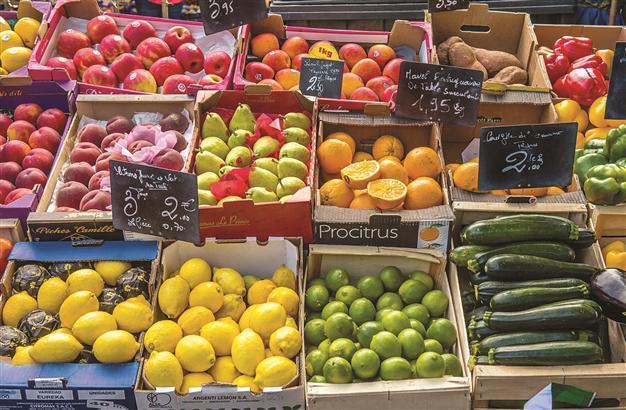Turkey hopeful of boosting exports to Russia amid ban on Western products
MOSCOW/ISTANBUL

Turkish produce might soon be Russia-bound thanks to counter-sanctions by the Kremlin against Western countries. AFP photo
Russia has banned most food imports from the West in retaliation for sanctions over Ukraine, raising Turkey’s hopes of boosting its exports to the country, which will turn to alternative suppliers.President Vladimir Putin ordered his government to adopt the measures to retaliate against Western countries who imposed sanctions on Russia’s defense, oil and financial sectors over its support for rebels waging an insurrection in east Ukraine.
Mehmet Büyükekşi, the head of Turkey’s top exporter, the Turkish Exporters’ Assembly (TİM), said they thought the Russian move “would create an opportunity” for Turkish exporters to increase their trade with the country.
Speaking to broadcaster NTV, he said Turkey had been suffering from some problems in its trade with Russia, particularly in poultry exports, the announcement could help the country recover from the setbacks.
He said fruit, egg and poultry sectors could particularly benefit, as the Turkish Agriculture Ministry has been implementing some restrictions on other food products. Büyükekşi also said the ministry could ease some of its bans.
Importantly, Uludağ Fruit and Vegetable Exporters Union Chairman Salih Çalı said the situation could possibly persuade Russian authorities to loosen tight controls that had hampered trade in recent years.
With the loss of some its major import markets, the Russian government has pledged to compensate the decline in purchases by boosting its imports from other countries, including Turkey, Latin America and ex-Soviet nations.
Russia is planning to propose that Turkey boost fruit and vegetable supplies to replace the now banned imports, the ITAR TASS state news agency quoted the chief of Russia’s phytosanitary watchdog, Sergey Dankvert, as saying.
Turkey was able to quickly increase supplies of produce to Russia, Dankvert said, as there were no licensing procedures. The talks will be held today, he added.
While the government claimed it will move quickly to replace Western imports by importing more food from alternatives to avoid empty shelves and price hikes, analysts predicted that it would further speed up inflation.
The damage to consumers inflicted by the ban will be felt particularly hard in big cities like Moscow, where imported food accounts for an estimated 60-70 percent of the market.
















